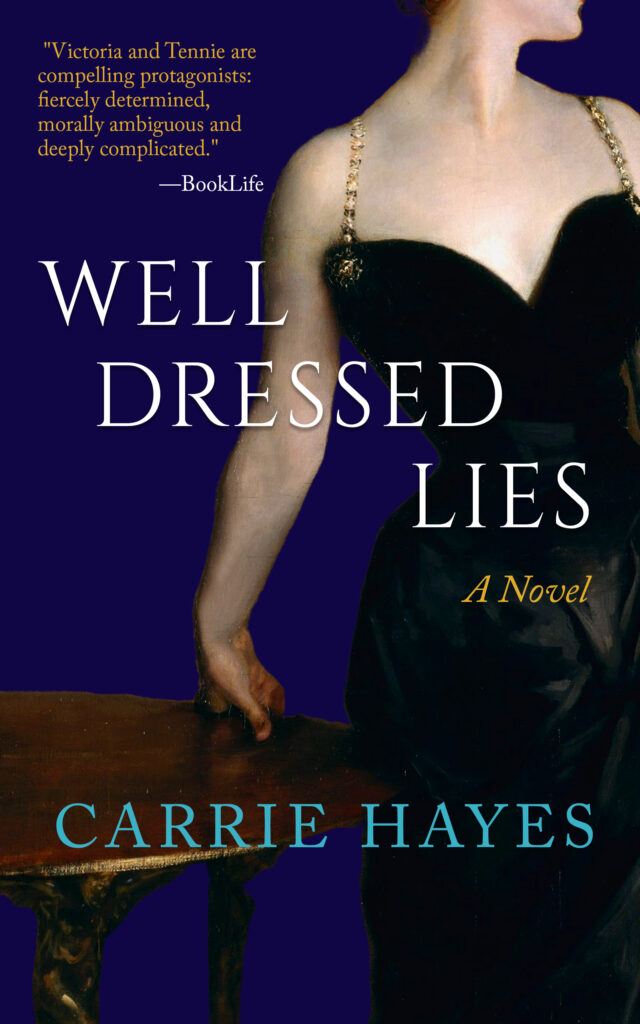
I’m really not sure how to approach this review, because it’s the kind of review I don’t usually write. More often than not I’ve been carried away by the book I was reading, and felt like I had so many things to say about it. This time, instead, I have a feeling that words won’t come so easily.
I knew “Well Dressed Lies” by Carrie Hayes didn’t exactly fall in the genre of books I usually read, but I pride myself with reading pretty much everything. And there was something in the idea of a couple of sisters travelling back to old Europe leaving some kind of secret behind, so I signed up to review it.
The first few pages were a bit confusing, and I soon found out that what I was missing was a bit of background. This book is, in fact, the second in a series of books inspired by the true story of the Clafin sisters, a story I didn’t know at all. After the first couple of characters, the story picks up and I started to get more into it.
The immersion in the story was made easy by how well the characters were written, and how each one of them had their own unique voice. Close to the end of the book, I’m pretty sure I could have guessed who was speaking even without looking at the chapter name. Each one of them was fascinating and intriguing in their own way.
And it was so cool to know that back in the second half of the 19th century a woman had already tried to run for President of the United States. I wasn’t surprised by the cheating hidden in the facade of morality that was typical of that era, but the part about Vicky Woodhull being the first female candidate to the presidency really struck me.
Sometimes, when I think about emancipation of women or of the minorities general, I tend to have a distorted view of its history, as if it could be divided into a before and an after. Such processes, instead, involve continuous change and are still ongoing today. And so, it makes complete sense to think that back in the late Nineteenth century, some woman was already trying to pave the way for equal representation in politics.
What’s wrong, then?
With such an introduction, you’ll understand that it’s not easy to motivate why I didn’t feel the same excitement I usually feel as I read a book. I wasn’t able to get into the story, and the more I think about it, the more I think it’s me.
It’s on me because I was expecting something less anchored to reality, not knowing that “Well Dressed Lies” was actually based on true people. And as much as I’m sure Carrie Hayes made it more interesting than it’d been in reality, when drawing so heavily from history there are much more constraints than in pure fiction.
It’s on me because even though I knew Henry James was a real person, I didn’t take it as a sign that other people might be “real” as well. I guess that’s what curiosity and eagerness to try something different do, in the end, so I don’t want to be too hard on myself for that.
“Well Dressed Lies” is not a book you read for its shock value, or its pace, or its unpredictable plot twists. You read it to get a glimpse at the life of the upper middle class in Victorian England, while getting to know a few interesting characters and some curious facts about that era. I can’t even begin to imagine the amount of research that went into it, especially because it didn’t sound artificial. It just flowed.
I’m sure I wouldn’t have had the same amount of thinking back about the book’s “big picture” and about my approach to new literary genres if the story had followed my expectations more. And if you’ve been reading a few of my book reviews, you already know what I think about being surprised by a book or my reaction to the book itself.
The things that stand out are the ones we tend to remember the most, and I think I’ll remember “Well Dressed Lies” for quite some time.
Be First to Comment